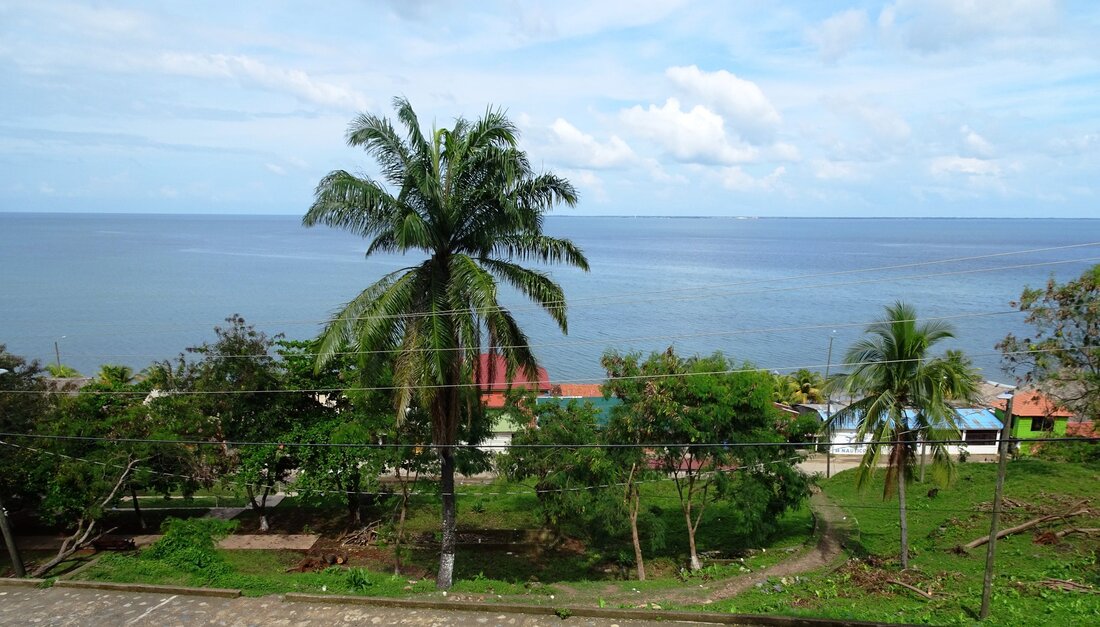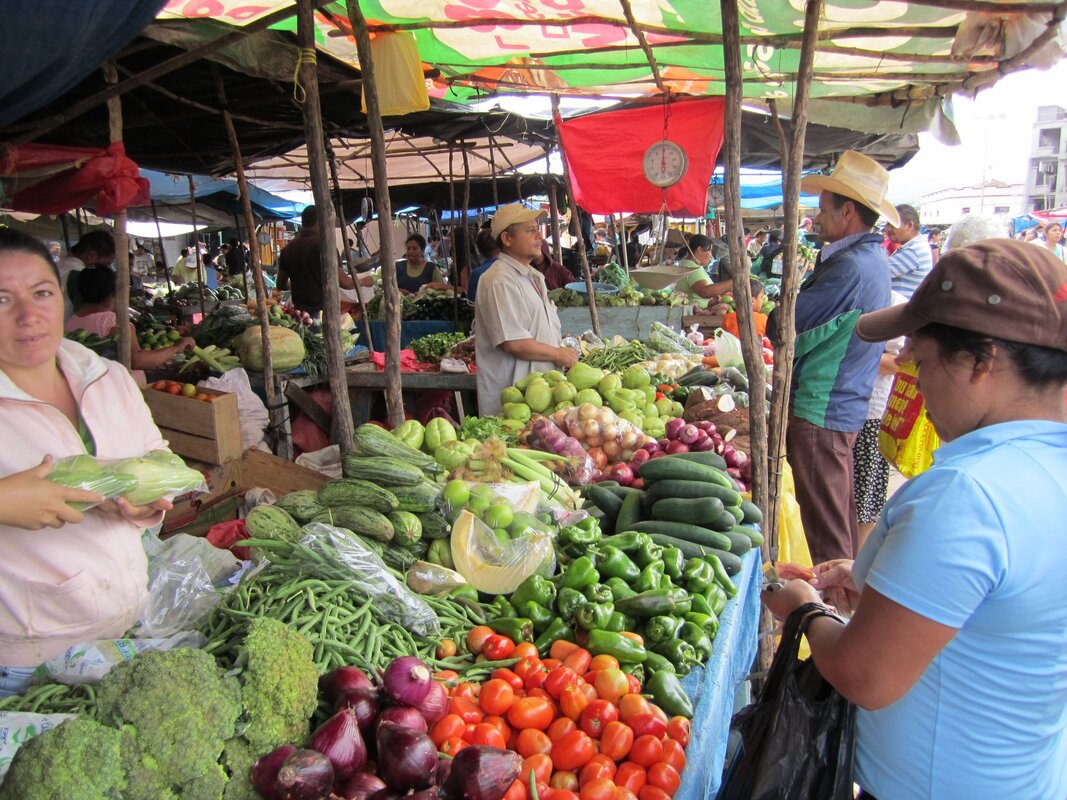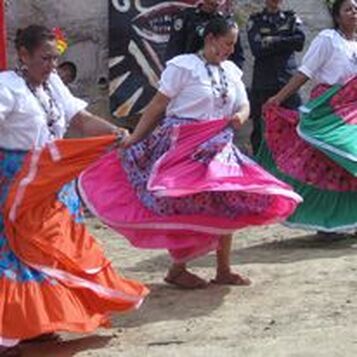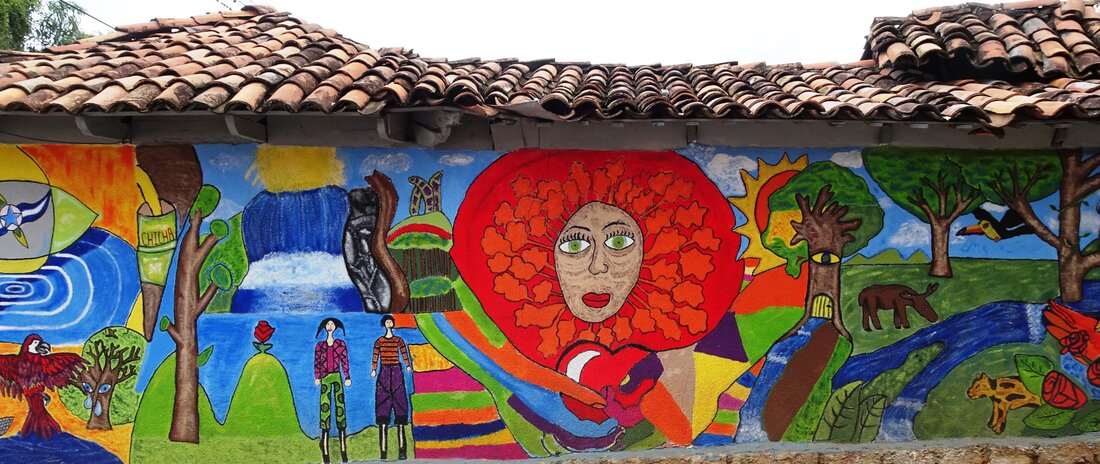Honduras, the Perilous Place I Call Home by Jill Dobbe
My pulse quickened, and my stomach lurched as the Delta 737 plane bumped and swayed like a carnival ride on our first flight into Honduras. Zigzagging toward the mountainous terrain, the pilot steered the aircraft toward the runway. I oohed and aahed, gazing in wonder at the rugged scenery below. Tall mountains were lush with green forests, winding dirt roads circled the hillsides, and numerous box-like dwellings, their rooftops overlaid in pink, brown, and orange, stood side-by-side resembling a painter’s palette. It looks like a different world, I thought, momentarily forgetting my jittery stomach.
Dan cited the fast-food restaurants visible through his small window as our plane hovered in the sky—Wendy’s, Burger King, Chili’s, McDonald’s---all stood together in one long city block.
“Wow,” I exclaimed, peering out of my side window, “it’s a fast-food bonanza.”
“I guess we won’t be living solely on tortillas and frijoles, after all,” he mumbled softly.
With a sudden and resounding thump, the aircraft dropped to the ground. It sped along the short tarmac with a loud, frightening whooshing sound. The pilot veered the plane toward its final stop, Toncontin International Airport in Tegucigalpa, the capital of Honduras. Nervous passengers sighed with uncontained relief before erupting into raucous applause. Known for having one of the world’s shortest and most dangerous airstrips, I clapped along with gusto.
Upon landing, Dan and I gathered our bags and followed the other passengers into the bright sunshine. We walked in single file across the sunbaked, concrete tarmac toward the arrivals hall. Inside the small terminal, we strode toward the sign marked non-residents and shuffled along behind the others. Airport workers cooling themselves off under an overhang stared openly at us as if watching a parade pass.
Glancing around, I couldn’t help but gape at the large group of young and boisterous missionary volunteers who now joined the already crowded aisles. Attired in neon orange t-shirts with Holy Saviors emblazoned across their backs, I smiled at their excited chatter, thinking they sure were a lively group. The missionaries chattered non-stop while the rest of us stood by morosely, waiting for an open customs agent. Finally making it up to the counter, a grim-faced man stuck his hand out for our passports. After checking our photos and taking our thumbprints, he stamped each one with a loud thud. “Gracias!” we said in unison and rushed toward the luggage carousels. Dan yanked our six suitcases off the rotating belt just as a thin, coffee-colored porter appeared and loaded them onto his luggage trolley without saying a word. I found a second cart, filled it with our carry-on bags, and followed the silent helper into the main terminal.
A crowd of young and old Hondurans swarmed the small arrivals area. Ranchers sporting cowboy hats, Latinas in high heels and skin-tight jeans, and short Mayan women, sleek, black braids hanging down their backs, waited anxiously for their friends and family members to arrive. The hordes blocked our path, making it difficult to push our way toward the exit. Dan, gripping the handle of his cart tightly, managed to move it into open space just as Sofia, a colleague from the school, advanced toward us.
“Hello! Bienvenidos!” Sofia called out, wearing a shirt adorned with the school emblem and a bright smile on her face. She kissed us on our cheeks in what we learned was a typical Honduran greeting. After Sofia's profuse welcome, Dan quickly returned to business and inquired about the currency.
“Where can I change our money?” he asked her, glancing around for the money-changing kiosk.
She quickly led us toward an outside hallway where several shoeshine men dozed in tall chairs. As soon as our gringo status was observed, they snapped to attention, and a short, dark-haired man popped out of nowhere, clutching a fist full of wadded-up paper bills. Recognizing him as the ‘money-man,’ we asked for his going rate and handed over our U.S. dollars. He counted a small stack of five-hundred lempira notes, the highest paper denomination worth approximately twenty-five U.S. dollars, and handed them over to us. Dan stuffed the small pile of lempiras into his wallet, and Sofia led us toward the exit. The two men pushed the luggage carts onto the parking lot and loaded our suitcases into her shiny, white SUV. After hopping into the front passenger seat and checking that all the bags were stowed correctly and accounted for, Dan tipped the porter, and we pulled out onto the crowded and noisy city streets. While navigating the bumper-to-bumper traffic quickly, Sofia pointed out a few areas of interest along the way, maintaining a steady monologue. I hadn’t noticed any street names from my window and couldn’t help but wonder if I’d ever find my way around this confusing city.
As Sofia crested the many hills and barreled through the narrow side streets, I attempted to follow her diatribe. However, she had such a thick accent and talked so rapidly that I wasn’t always sure if she spoke Spanish or English. After we pulled up to the entrance of the Maya Hotel, our home base for the next few days, Dan and I jumped out. The hotel concierge rushed over and unloaded our luggage. After everything was out, Sofia waved to us, yelling loudly out the window, “See you later!” I watched open-mouthed as she screeched out of the lot, back onto the busy road.
“Do you think we’ll ever see her again?” I asked, watching her SUV quickly round the corner.
“I sure hope so,” Dan replied, stepping into the hotel lobby with me tagging along.
I gazed at the opulent, spacious area as he registered for our room. Leafy palm trees and pink bougainvillea bushes encircled the outdoor pool giving the scene a tropical ambiance. The open-air restaurant’s tables, already set for dinner, were covered in vibrant woven placemats with a single blossom in each glass vase.
“It finally feels like we’re in Latin America,” I revealed. “Just look at all those luscious tropical flowers.”
We rode up in the elevator with our luggage in tow, anxious to drop it off in our room. The flight from Wisconsin to Tegucigalpa, or Tegus, as the locals called it, was a mere seven hours, including a brief layover in Atlanta. After such a quick flight, we still had enough energy left to go out and explore the city. For once, we weren’t exhausted from the mind-numbing jetlag we often endured during our longer international moves. Before heading out the glass doors, Dan stopped at the front desk and asked for directions to El Centro.
Staring at us in shock, the hotel clerk warned, “Sir, you must not go walking in that area at this time of day. It is much too dangerous.”
Leaning toward me, Dan whispered, “It must be a bad part of town if he warned us not to go there.”
Oh, help, I thought, the rumors about Honduras being dangerous are true.
We settled for a quick dinner at an Italian restaurant directly across the street, heeding the man's advice. After our meal, where we were the only diners, we walked the fifteen steps back to our hotel. Safe inside our room, I immediately located the remote control and pointed it at the television. Spanish voices blared as I sprawled across the king-sized bed, ready to watch telenovelas for the rest of the night.
***
The following day, golden sunlight exploded into the hotel room and woke me from a dreamless sleep. Dan yanked the heavy drapes and pulled the blankets off my inert body. Already showered and dressed, he looked professional in his shirt and tie, ready to begin a day of teaching. While he organized his bag, I rummaged through my suitcase, looking for a sleeveless dress to wear for our first school trip. It was only 7:00 a.m., and the day already felt oven-like. After a quick shower, I dressed, ensured my sunglasses were securely stowed in my handbag, buckled my sandals, and ventured out the door. Now the end of July, six months after we were interviewed and hired at an overseas recruiting fair in Atlanta, Georgia, we were finally going to visit our new school, the eighth one to date.
Life-long international educators, we relocated to Honduras in 2011, our first country in Central America. That initial thrill we felt when moving to a different country took over; however, feelings of trepidation about Honduras continued to nag at me. I couldn’t shake the knowledge that it had a reputation for being dangerous. I already had cold feet, unsure of what lay ahead for us. Despite its infamy, I pushed my apprehension aside and prepared to give it a try.
The sun’s glare blinded me as I stepped outside the hotel. Rummaging in my bag, I located my sunglasses and put them on. Relief from the intense rays was immediate as I followed Dan into the waiting van. “Buenos Dias,” we called to the driver before he pulled out of the lot. The van cruised up and down the many hills. Cars, trucks, and motorcycles scooted past with no regard for car lanes or speed limits. I gazed out the window as we drove past farmacias and mini-markets, guarded by walls sporting loops of barbed wire and haphazardly-placed shards of broken glass. Armed security guards seemed to be everywhere--in front of banks, on car lots, at grocery store entrances, malls, and even outside Pizza Hut and Dunkin Donuts.
“There sure is a lot of security around here,” I muttered quietly to Dan.
After a quick twenty-minute trip, we lurched to a stop in front of an enormous locked gate. Two serious-looking guards waved the driver through. He sailed down a slight hill and parked alongside four white school buses, looking more like hotel vans. I stepped onto the parking lot and turned, peering at the white buildings. Unsure of which route to take to get on the campus, Dan and I stood in the blazing hot sun and waited for someone to come by and greet us, maybe even offer us a tour. But after ten minutes without seeing a soul, we set off on our own.
The school campus sat high on a hill. Bountiful displays of green, flowering plants created a serene park-like setting overlooking houses with reddish clay rooftops. I checked out the view from all sides and was pleasantly surprised to see modern-looking houses and new apartment buildings sandwiched together. Standing atop the hill, I noticed the infamous Christ statue, El Cristo de Picacho, tall and erect, overlooking all of the city and its barrios. Towering white letters displayed in the distance spelled out Coca-Cola, reminiscent of the Hollywood, California sign. The beautiful blue and white Basilica de Suyapa, named after the country’s patron saint, stood in majestic splendor at one end of the city. A vast cemetery dotted with tombstones and faded plastic flowers surrounded the statuesque cathedral. Well-known for its brilliant stained glass windows, Hondurans believed it to be where la Virgen de Suyapa performed hundreds of miracles.
“Just look at that spectacular view!” I exclaimed with delight. “And we'll get to see it every single day.”
Our campus exploration ended at the business office, where we stopped to say hello to Ms. Lopez, the school director, whom we hadn’t seen since December when she hired us. She gave us an enthusiastic welcome and ushered us into her office. Hot and sweaty, I sank onto her soft, cozy leather couch, wishing I could stay in the air-conditioning for the rest of the afternoon.
After making small talk about our flight and our hotel stay, Ms. Lopez suddenly got serious. Following a sobering pause, she informed us of the recent kidnapping of a high school student.
“Ummm...what did you just say?” Dan asked, quickly glancing over at me, shock and concern written on his face.
“I just found out that one of our tenth-graders was abducted at gunpoint last night,” Ms. Lopez explained in a matter-of-fact voice.
“So, what’s happening now?” he asked, stunned.
“Well, they’re hoping to find him, and the family is getting money together to pay his ransom,” she stated calmly.
“Hmm….so….how does something like this happen….and why?” I asked, continuing the interrogation.
“Well, it occasionally happens to families who own land or are known to have a great deal of money. They become targets, and family members are taken and held for a while. I am in contact with the family, and they will let me know what’s happening. Right now, we’re all just waiting and praying,” she stated with finality, moving the conversation on to more pleasant subjects.
Later, after we left her office and rode back to our hotel, Dan brought up the kidnapping again. Beside himself with worry, he exclaimed, “I can’t believe it! Oh, my God, high school students are being kidnapped here. What kind of a place did we move to?”















